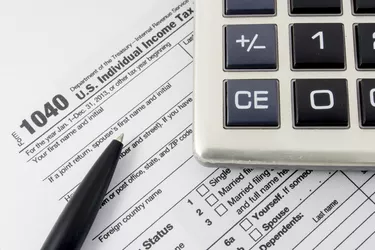
The Internal Revenue Service penalizes early withdrawals from employer-sponsored plans, but does permit you to take tax-free loans from a Roth 401(k) within certain limits. However, it's ultimately up to your plan to decide whether or not to permit loans. If your employer says no loans, you can't borrow from your Roth 401(k).
Loan Limits
Video of the Day
The IRS sets the maximum amount you can borrow from your Roth 401(k) plan at the lesser of $50,000 or 50 percent of your account balance. However, these limits are cumulative with your traditional 401(k) loans with the same employer. For example, if you have a $20,000 loan from your traditional 401(k) plan, you could only borrow a maximum of $30,000 from your Roth 401(k) plan with the same company.
Video of the Day
Repayment Terms
Typically, Roth 401(k) loans must be repaid within five years, and the payments must be substantially equal. For example, you couldn't repay a token amount of your Roth 401(k) loan for the first three years and then make larger payments over the last two to meet the repayment deadline. However, the IRS does let you take a longer time to repay a loan if it's used for buying a principal residence. If you need a 401(k) loan for a down payment on your house, you can take longer than five years to pay it back.
Tax Implications
Taking a loan from your Roth 401(k) plan doesn't carry any negative tax implications -- as long as you pay it back as agreed. Where people run into tax issues, however, is if they don't pay it back. If you leave your job, even for circumstances completely out of your control, the entire balance becomes due shortly thereafter: typically within two months. If you don't repay it, it's a deemed distribution of the balance of the loan, and the portion of the loan attributable to earnings then becomes taxable and subject to the 10 percent early withdrawal penalty in most cases.
Roth 401(k) Loan Interest
You will pay interest on the loan from your Roth 401(k) plan while it remains outstanding, even though you're essentially borrowing your own money. The interest rate typically is slightly higher than prime, and it goes back into your account. The balance of your loan that remains outstanding isn't invested, so you miss out on any gains. For example, if you have $10,000 outstanding and pay 4 percent interest, but the market increases 7 percent, you're not earning as much as you would have if you'd left the money in the account.